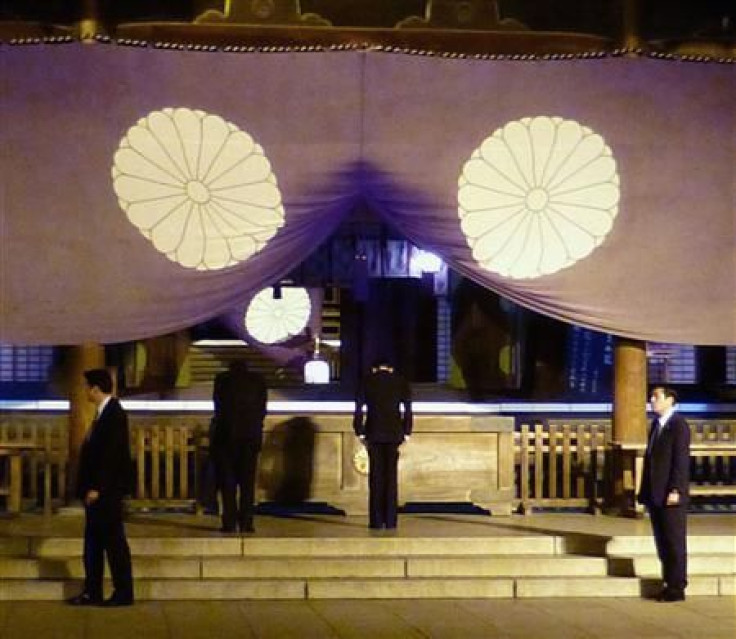South Korea Upset Over Japan PM Abe's Remarks On His Country’s Past; Seoul Summons Japanese Envoy

South Korea summoned Japan’s ambassador in Seoul on Thursday to register protest against Japanese Prime Minister Shinzo Abe’s remarks defending his country's past and Japanese lawmakers’ visit to a controversial war-linked shrine, seen as a symbol of Japan’s past nationalist aggression.
"We don't understand why Japanese society closes its eyes and covers its ears about pain and damage caused by its past invasion and colonial rule, while it treats honesty and trust as important values," South Korea's Vice Foreign Minister Kim Kyou-hyun told Japan’s Ambassador Koro Bessho, Reuters reported, quoting a statement from the Japanese Foreign Ministry.
Earlier, South Korean Foreign Minister Yun Byung-se canceled a trip to Japan after two Japanese Cabinet ministers, including Deputy Prime Minister Taro Aso, visited the Yasukuni Shrine, sparking backlash from South Korea and China, who said that the visit glorified Japan’s wartime atrocities.
Soon after the ministerial visit to the shrine, a total of 168 Japanese MPs visited the war memorial, drawing further criticism from the Asian victims of Japan's wartime aggression.
Adding to the tension, Prime Minister Abe, who made a ritual offering without visiting the shrine, said on Wednesday that it was “natural to honor the spirits of the war dead who gave their lives for the country.”
“It is also my job to protect our pride, which rests on history and tradition,” Abe told a parliamentary panel.
Abe also told lawmakers that he was doubtful of the exact definition of “invasion,” saying it can vary depending on who defines it, Seoul’s Yonhap news agency reported.
The remarks prompted South Korean President Park Geun-hye to call on Japan to have a correct understanding of history.
"Korea-Japan relations are very important in security, economy and all other aspects. But it would be difficult to move in a future-oriented manner if [Japan] holds incorrect perceptions of history and makes past scars worse," Park said at a meeting with managing editors of South Korean newspapers and broadcasters, the Yonhap report said.
Responding to South Korea’s backlash, Japan's Chief Cabinet Secretary Yoshihide Suga told a news conference on Thursday that Tokyo did not want the Yasukuni issue to affect ties with its neighbors.
“Our basic stance is, as I have been saying, our nation has caused a great pain and suffering to many nations, especially people in Asian nations, in the war,” he was quoted as saying by Reuters.
“Japanese governments have accepted these historical facts sincerely and have expressed our deepest remorse and heartfelt apology, and have expressed the condolences for all the victims. ... This is the same for the Abe government,” Suga said.
Yasukuni was originally built in 1869 to honor Japan’s martyrs and contains the names of soldiers who were killed in armed conflicts including World War II.
However, the shrine became controversial when it honored 14 men convicted of war crimes by a U.S.-led Allied Tribunal, including Gen. Hideki Tojo, the prime minister who authorized the attack on Pearl Harbor, an event that drew the U.S. into the war.
© Copyright IBTimes 2024. All rights reserved.












